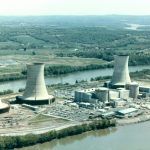A security system commensurate with the risk of nuclear terrorism
By Kenneth C. Brill, Kenneth N. Luongo | April 16, 2012
A hot mic shouldn’t overshadow a dirty bomb. The Nuclear Security Summit in Seoul ended recently with two dominant story lines: President Obama’s “hot mic” comments to Russian President Medvedev and the 53 participating governments congratulating themselves on the summit’s outcomes. Both miss the key strategic problem that the Seoul Summit did not address: the need to unify the current patchwork, largely voluntary approach to nuclear security that is not commensurate with the risk or consequences of nuclear terrorism.
A quick reading of the Seoul summit communiqué highlights the problem. Almost every significant substantive step described in the communiqué is preceded by the words “we encourage.” So states are “encouraged” to share best practices, to safely secure and dispose of unneeded nuclear material, and to work with and support the International Atomic Energy Agency (IAEA). But there is no obligation to meet the voluntary standards and no institution, not even the IAEA, with the mandate to evaluate countries’ nuclear security performance. This underscores the fundamental failing of the current global approach to nuclear security: It is based on national voluntary actions that are unaccountable and inconsistent across borders.
There are a number of G-8, UN Security Council, US-Russian and other like-minded states’ nuclear-security initiatives and programs; however, none develops globally agreed standards for nuclear security. But a security system is only as strong as its weakest link. The current patchwork arrangement of largely voluntary actions is full of potential gaps and weak points that terrorists can exploit.
We know for a fact that terrorist groups are seeking nuclear material, and there is a black market in such material. In 2011, police in Moldova broke up a black market smuggling operation attempting to sell highly enriched uranium. Unfortunately, one member of the smuggling group remains at large with as much as a kilogram of highly enriched uranium, as does a potential buyer from North Africa.
If a terrorist group exploded an improvised nuclear device, global leaders would move aggressively to develop and agree on a more robust approach to nuclear security. But the whole point of US and international efforts should be to prevent nuclear terrorism, not respond to its consequences.
The alternative to the current patchwork of nuclear security initiatives is a legally binding global framework convention on nuclear security. This new framework convention would strengthen and build on the current regime but fill the gaps and unify relevant international security agreements and recommendations. It would commit states to an effective standard of securing dangerous nuclear materials and give the IAEA the mandate to evaluate whether states are meeting their nuclear security obligations and provide assistance to states that need help in doing so.
There is a precedent for how to approach this convention that would not allow nuclear security naysayers to water it down. The Vienna Convention for the Protection of the Ozone Layer addressed a novel and challenging issue with global consequences. It started with only 28 signatories, and its subsequent Montreal Protocol started with only 46. Yet they became universally accepted treaties with over 190 signatories in a relatively short time and are widely viewed today as exceptionally successful.
A nuclear terrorist attack would have profound economic, political, security, and social consequences globally, not just in a few countries. The Washington and Seoul Nuclear Security Summits have been useful but insufficient to meet the evolving threat. We need a few visionary national leaders to launch a new approach to nuclear security, based on a framework convention that promotes accountable nuclear security standards for all states.
Australian Prime Minister Julia Gillard’s statement at the Seoul Summit indicated she is thinking along these lines. President Obama, whose vision launched the Summit process in 2010, needs to tell US officials to stop playing small ball and work with Australia, Korea and the Dutch, who will host the next summit in 2014, to support a framework convention on nuclear security, an initiative commensurate with the risk and consequences of nuclear terrorism.
Editor’s note: This article was originally published by the McClatchy Company.
Together, we make the world safer.
The Bulletin elevates expert voices above the noise. But as an independent nonprofit organization, our operations depend on the support of readers like you. Help us continue to deliver quality journalism that holds leaders accountable. Your support of our work at any level is important. In return, we promise our coverage will be understandable, influential, vigilant, solution-oriented, and fair-minded. Together we can make a difference.
Topics: Nuclear Weapons, Opinion















